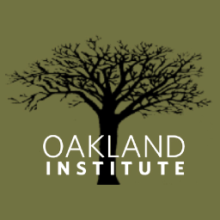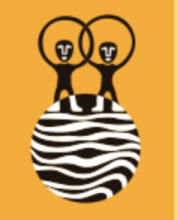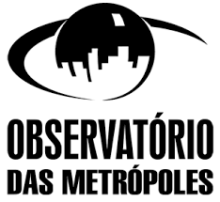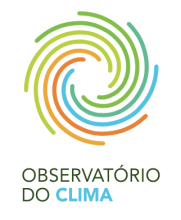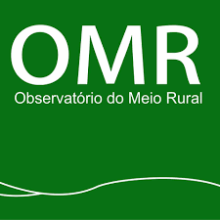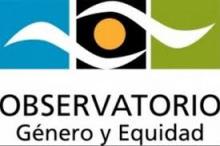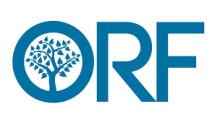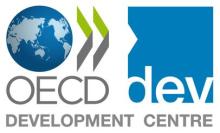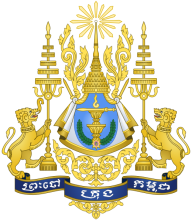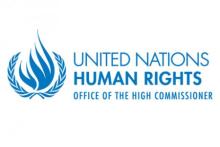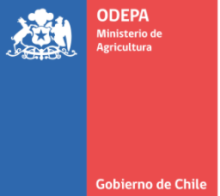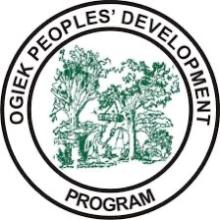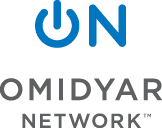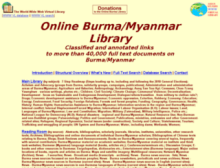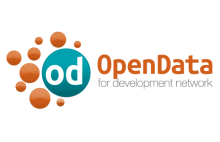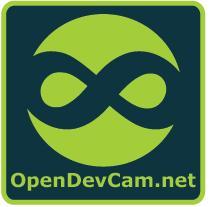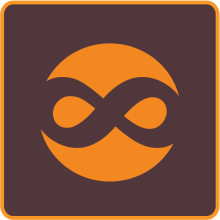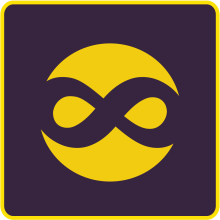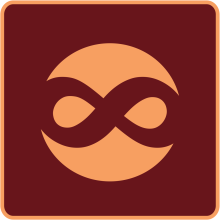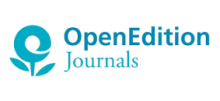Le bibliothèque du foncier comprend des ressources provenant de plus de 1 890 fournisseurs d'informations nationaux et internationaux. Découvrez les organisations et les institutions qui utilisent le Land Portal pour partager leurs recherches, leurs données et leurs histoires en libre accès.
Oakland Institute
The Oakland Institute is a policy think tank whose mission is to increase public participation and promote fair debate on critical social, economic and environmental issues in both national and international forums.
The Oakland Institute’s trademark is to work in coalitions and networks to strengthen social movements, especially as we forge multi-cultural, cross-border and cross-class alliances. As a policy think tank our work is unique (in that we are bringing new approaches to social change including the awareness of economic, social and cultural rights) as we work with grass roots constituency (faith-based, farm workers, immigrant rights groups, Black farmers, among others) and help bridge policy think tanks with activist networks and social movements.
The Institute engages in three main areas of interrelated program work:
- Bringing a social and economic human rights lens to organizing and policy work
- Reframing the debate on security
- Building strategic alliances to strengthen popular struggles nationally and internationally
The Institute addresses this work through education and advocacy activities in national and international forums. Our aim is not just to come up with a list of new policy solutions but to reframe the basic terms on which public debate takes place. Our goal is to stimulate public discussion and debate while creating an informed citizenry that can craft a new vision of action for the future.
Observatoire du Foncier
En 2005, le gouvernement de Madagascar s’est engagé dans une vaste réforme visant à répondre à la demande de sécurisation foncière massive, dans des brefs délais et à des coûts ajustés, ainsi qu’à instaurer des services de qualité qui répondraient aux attentes des usagers. La mise en place de l’Observatoire du Foncier (OF) répond à la recommandation de la Lettre de Politique Foncière de créer un organisme d’orientation, de suivi et de production d’information.
Créé par le Décret 2010 – 745 du 27 juillet 2010, et rattaché au Secrétariat Général du MATD, l’Observatoire du Foncier est assimilée à une structure de recherche dont la mission est la production d’informations et de connaissances de terrain pour appuyer la formulation et le pilotage de politiques foncières adaptées, faire le suivi de la mise en œuvre de ces politiques et évaluer leurs impacts. Il se constitue donc comme un outil d’aide aux institutions gouvernementales, bailleurs de fonds, société civile, projets et opérateurs de terrain, pour orienter les décisions opérationnelles et les choix politiques.
Observatorio Ciudadano
El Observatorio Ciudadano es una organización no gubernamental sin fines de lucro dedicada a la defensa, promoción y documentación de derechos humanos. Fue creado en septiembre de 2004, en la ciudad de Temuco, Chile, como Observatorio de Derechos de los Pueblos Indígenas, por un grupo de ciudadanos de distintos lugares del país, diversas profesiones y procedencia étnica.
El trabajo desarrollado hasta ahora ha sido multidisciplinario e intercultural. A contar de 2008 amplía su mandato para abordar nuevos y emergentes desafíos de derechos humanos, modificando su nombre a Observatorio Ciudadano, siempre guiada por los lineamientos contenidos en los instrumentos internacionales de derechos humanos y de derechos de los pueblos indígenas vigentes.
El Observatorio cuenta con oficinas en Temuco y Santiago, Chile. Aunque su trabajo se focaliza principalmente en asuntos domésticos en Chile, a través de sus redes de trabajo con la Federación Internacional de Derechos Humanos, la Red DESC, las cuales el Observatorio integra, y de su colaboración con, entre otras entidades, el Grupo de Trabajo Internacional sobre Asuntos Indígenas (IWGIA), se ha enfocado crecientemente en iniciativas de carácter regional en América Latina.
OBSERVATÓRIO DAS METRÓPOLES
Constituímos hoje um grupo que funciona como um instituto virtual, reunindo hoje 159 pesquisadores (dos quais 97 principais) e 59 instituições dos campos universitário (programas de pós-graduação), governamental (fundações estaduais e prefeitura) e não-governamental, sob a coordenação geral do IPPUR - Instituto de Pesquisa e Planejamento Urbano e Regional da Universidade Federal do Rio de Janeiro.
As Instituições reunidas hoje no Observatório das Metrópoles vêm trabalhando de maneira sistemática sobre 14 metrópoles e uma aglomeração urbana: Rio de Janeiro, São Paulo, Porto Alegre, Belo Horizonte, Curitiba, Goiânia, Recife, Salvador, Natal, Fortaleza, Belém, Santos, Vitória, Brasília e a aglomeração urbana de Maringá.
Observatório do Clima
- O OC realiza debates para definição de estratégias e iniciativas conjuntas capazes de promover a agenda socioambiental e enfrentamento da crise climática;
- O OC apoia e promove iniciativas de capacitação, treinamento, educação e disseminação de informação nos temas afetos às mudanças climáticas, para sensibilização e mobilização da sociedade em geral;
- O OC participa de forma qualificada de fóruns, instâncias e redes nacionais e internacionais de discussão e deliberação sobre mudanças climáticas;
- O OC produz conhecimento científico, político e jurídico relevante para tomadores de decisão e a sociedade em geral.
Observatório do Meio Rural
O Observatório do Meio Rural (OMR) é uma pessoa colectiva de direito privado sem fins lucrativos, dotada de personalidade jurídica e com autonomia administrativa, financeira e patrimonial.
Registada na Conservatória do Registo das Entidades Legais sob o Número Único de Entidade Legal 100274736, com sede na cidade de Maputo, República de Moçambique.
Observatório do Meio Rural
O Observatório do Meio Rural (OMR) é uma pessoa colectiva de direito privado sem fins lucrativos, dotada de personalidade jurídica e com autonomia administrativa, financeira e patrimonial.
Registada na Conservatória do Registo das Entidades Legais sob o Número Único de Entidade Legal 100274736, com sede na cidade de Maputo, República de Moçambique.
Observatorio Género y Equidad
El Observatorio de Género y Equidad (OGE) es un fundación que promueve el debate, seguimiento, evaluación y reflexión colectiva respecto a la situación de las mujeres en Chile y las políticas dirigidas a la promoción, respeto y garantía de sus derechos. En él colaboran instituciones y organizaciones de mujeres de la sociedad civil, en las que participan académicas y académicos, activistas y expertas/os en temas de equidad de género.
Es una “Plaza Pública” abierto para debatir, expresar opiniones e informar sobre la democracia, la igualdad entre mujeres y hombres y la justicia social. Un espacio para conversar, discutir y dar a conocer las actividades de interés para las organizaciones. Un espacio democrático para cuestionar, interpelar y reflexionar, con el auspcio de Fundación Friedrich Ebert.
Observer Research Foundation
Set up in 1990, ORF seeks to lead and aid policy thinking towards building a strong and prosperous India in a fair and equitable world. It helps discover and inform India’s choices, and carries Indian voices and ideas to forums shaping global debates. ORF provides non-partisan, independent analyses and inputs on matters of security, strategy, economy, development, energy, resources and global governance to diverse decision-makers (governments, business communities, academia, civil society). ORF’s mandate is to conduct in-depth research, provide inclusive platforms and invest in tomorrow’s thought leaders today.
ORF began its journey in 1990 at the juncture of ideation tempered by pragmatism. During the period of India’s transition to a new engagement with the international economic order, several challenges emerged, evoking a need for an independent forum that could critically examine the problems facing the country and help develop coherent policy responses. ORF was thus formed, and brought together, for the first time, leading Indian economists and policymakers to present the agenda for India’s economic reforms.
Propelled by the process of reforms initiated in the 1990s, ORF, over the past 25 years of its existence, has effectively narrated and participated in India’s story as the country has acquired an unmistakable global footprint. From primarily looking inward and engaging with domestic reforms, to gradually forging global partnerships, ORF today plays a seminal role in building political and policy consensus that enables India to interact with the world.
As new powers re-emerge onto the global stage, existing systems face challenges of agreeing on a new set of rules to control and regulate the new frontiers of space, the oceans, the internet and the human mind. The world continues, also, to navigate persisting concerns related to security and strategy, economy and development, energy and resources. As India begins to play a larger role in the 21st century, ORF continues to push normative boundaries, bring new ideas into the policy discourse and provide a platform to a new generation of thinkers. It is supported in its mission by leading intellectuals, academicians, policymakers, business leaders, institutions and civil society actors.
ORF’s aim is to encourage voices from all quarters, geographies and gender, both those that fallin and those that question dominant narratives. It is this plurality of thought and voice – in a country of over a billion individuals – that ORF seeks to carry abroad, while simultaneously bringing contemporary global debates to India.
The Mandate
ORF seeks to lead and aid policy thinking towards building a strong and prosperous India in a fair and equitable world. It sees India as a country poised to play a leading role in the knowledge age – a role in which it shall be increasingly called upon to proactively ideate in order to shape global conversations, even as it sets course along its own trajectory of long-term sustainable growth.
ORF helps discover and inform India’s choices. It carries Indian voices and ideas to forums shaping global debates. It provides non-partisan, independent, well-researched analyses and inputs to diverse decision-makers in governments, business communities, and academia and to civil society around the world.
Our mandate is to conduct in-depth research, provide inclusive platforms and invest in tomorrow’s thought leaders today.
OECD Development Centre
The OECD Development Centre was established in 1961 as an independent platform for knowledge sharing and policy dialogue between Organisation for Economic Co-operation and Development member countries and developing economies, allowing these countries to interact on an equal footing.
The Centre draws attention to emerging systemic issues likely to affect global development and more specific development challenges faced by today’s developing and emerging economies. It uses evidence-based analysis, and strategic partnerships, to help countries formulate innovative policy solutions to the global challenges of development.
Office of the Prime Minister Royal Government of Cambodia
The Prime Minister of Cambodia (Khmer: នាយករដ្ឋមន្ត្រីនៃព្រះរាជាណាចក្រកម្ពុជា) is the head of government of Cambodia. The prime minister is also the chairman of the Cabinet and leads the executive branch of the Royal Cambodian Government. The prime minister is required to be a member of parliament, and is appointed by the monarch for a term of five years. Since 1945, there have been 36 prime ministers.
Source: Wikipedia (d.d. December 8th 2017)
Office of the United Nations High Commissioner for Human Rights
The Office of the United Nations High Commissioner for Human Rights (OHCHR) represents the world's commitment to universal ideals of human dignity. We have a unique mandate from the international community to promote and protect all human rights.
Mission Statement
The mission of the Office of the United Nations High Commissioner for Human Rights (OHCHR) is to work for the protection of all human rights for all people; to help empower people to realize their rights; and to assist those responsible for upholding such rights in ensuring that they are implemented.
In carrying out its mission OHCHR will:
- Give priority to addressing the most pressing human rights violations, both acute and chronic, particularly those that put life in imminent peril;
- Focus attention on those who are at risk and vulnerable on multiple fronts;
- Pay equal attention to the realization of civil, cultural, economic, political, and social rights, including the right to development; and
- Measure the impact of its work through the substantive benefit that is accrued, through it, to individuals around the world.
Operationally, OHCHR works with governments, legislatures, courts, national institutions, civil society, regional and international organizations, and the United Nations system to develop and strengthen capacity, particularly at the national level, for the protection of human rights in accordance with international norms.
Institutionally, OHCHR is committed to strengthening the United Nations human rights programme and to providing it with the highest quality support. OHCHR is committed to working closely with its United Nations partners to ensure that human rights form the bedrock of the work of the United Nations.
Oficina de Estudios y Políticas Agrarias
La Oficina de Estudios y Políticas Agrarias -Odepa-, es un servicio público centralizado, dependiente del Presidente de la República a través del Ministerio de Agricultura, creada mediante la Ley N° 19.147, que fuera publicada en el Diario Oficial del 21 de Julio de 1992.
Odepa, según señala el Artículo 2° de dicha Ley, tendrá por objeto proporcionar información regional, nacional e internacional para que los distintos agentes involucrados en la actividad silvoagropecuaria adopten sus decisiones.
Ogiek Peoples’ Development Program
Ogiek Peoples’ Development Program (OPDP) is a Kenyan based Non-Governmental Organization (NGO) founded in 1999 and registered by the Kenyan Government in 2001. It was formed by the typical Ogiek elders, opinion leaders, and professionals after long historical injustices that deprived Ogiek community of their rights as Kenyan citizens.
OPDP work is centered on promoting the recognition and identity of Ogiek culture, participation and inclusion of community in all sectors of development, championing for land rights, ensuring environmental protection, and overall sustainable development.
OPDP is based in Nakuru town and operates in six main counties inhabited by this community namely: - Nakuru, Narok, Nandi, Kericho, Baringo and Uasin Gishu.
Mission and Vision
Mission: OPDP exists to promote and advocate for the participation, self-determination and human rights of the members of the Ogiek community for sustainable development in Kenya.
Vision: An empowered Ogiek community in a Kenyan society that embraces equality and diversity.
Overall Goal:To improve and enhance the attainment of inclusive and of equal opportunity in the economic, social, cultural, and political conditions of the Ogiek community and active participation in the building and sustaining a vibrant Kenyan nation.
Oikos
A Oikos: Família e Sociedade em debate, revista com periodicidade semestral, avaliada como A2 no Qualis Capes, destina-se à disseminação de trabalhos científicos inéditos desenvolvidos na área de conhecimento das Ciências Humanas e Ciências Sociais Aplicadas que proponham contribuições teóricas, metodológicas e/ou análise empírica que possuam implicações sobre as temáticas Família e Sociedade. São aceitos artigos de diferentes perspectivas epistemológicas que apresentem consistência teórica e metodológica, demonstrando clara contribuição para os debates sobre família e sociedade em suas interfaces com políticas sociais, trabalho, movimentos sociais, questão socil, dentre outros temas correlatos.
Omidyar Network
Omidyar Network is a philanthropic investment firm dedicated to harnessing the power of markets to create opportunity for people to improve their lives. Established in 2004 by eBay founder Pierre Omidyar and his wife Pam, the organization invests in and helps scale for-profit companies and nonprofit organizations that foster economic advancement and encourage individual participation across multiple investment areas, including microfinance, entrepreneurship, government transparency and property rights. Within property rights, Omidyar Network identifies and supports organizations that increase access to land and security of tenure, encourage fair laws, and advance awareness and formalization of rights for the poor. The organization currently supports Landesa, the Institute for Liberty and Democracy and the Foundation for Security, and is actively seeking new partners working to increase secure access to property rights. For more information, visit www.omidyar.com.
ONE campaign
ONE is an international campaigning and advocacy organization of more than 7 million people taking action to end extreme poverty and preventable disease, particularly in Africa… because the facts show extreme poverty has already been cut by 60% and can be virtually eliminated by 2030, but only if we act with urgency now.
Cofounded by Bono, we raise public awareness and work with political leaders to combat AIDS and preventable diseases, increase investments in agriculture and nutrition, and demand greater transparency so governments are accountable to their citizens. ONE does not raise money itself to build schools, hospitals and the like, but does its work by advocacy and campaigning so that government funds continue to flow to programs that make a difference in people’s lives. ONE works closely with African activists and policymakers as they fight corruption, promote poverty-fighting priorities, monitor the use of aid, and help build civil society and economic development. ONE’s work is strictly politically non-partisan.
In recent years, ONE’s members, together with other campaigners, have played an important role in persuading governments to support effective programs and policies that are making a measurable difference in fighting extreme poverty and disease. Partly as a result of these advocacy efforts, more than 9 million people living in Africa today have access to lifesaving AIDS medication, up from only 50,000 in 2002. Malaria has been cut by 75% in eight African countries since 2000, and 54 million more children across sub-Saharan Africa are now going to primary school compared to 1999.
ONE is not a grant-making organization and does not solicit funding from the public or receive government funding. ONE is funded almost entirely by foundations, individual philanthropists and corporations. We achieve change through advocacy – our teams in Washington, D.C., New York, London, Johannesburg, Brussels, Berlin and Paris educate and lobby governments to shape policy solutions that save and improve millions of lives.
Online Burma/Myanmar Library
The Online Burma/Myanmar Library (OBL) is a non-profit online research library mainly in English and Burmese serving academics, activists, diplomats, NGOs, CSOs, CBOs and other Burmese and international actors. It is also, of course, open to the general public. Though we provide lists of Burma/Myanmar news sources, the Library’s main content is not news but in-depth articles, reports, laws, videos and links to other websites, We provide a search engine (database and full text) and an alphabetical list of categories and sub-categories, but the Library is best accessed through browsing the 100 or so categories which lead to sub- and sub-sub categories. These tools should be used in combination.
Open Data Charter
The Open Data Charter is a collaboration between governments and organizations working to open up data based on a shared set of Principles. With 73 government adopters and 53 organizations endorsers, our goal is to embed open data as a central ingredient to achieving better solutions to the most pressing policy challenges of our time.
Open Data for Development
Open Data for Development (OD4D) is a global partnership to advance the creation of locally-driven and sustainable open data ecosystems around the world. OD4D uses an ecosystem approach to build the local supply of quality open data, and improve its use by leaders and innovators in government, civil society, the media and business. As a global data collaborative, OD4D is scaling open data approaches that work, improving transparency and accountability, service delivery, and the well-being of the poorest and most marginalized.
Open Development Cambodia
Open Development Cambodia (ODC) is an ‘open data’ website, the first of its kind in Southeast Asia. The open data movement is based on the simple premise that data collected for public interest should be publicly available without restrictions. Information or data in the public domain should be freely available to everyone to use and republish as they wish. Open Development Cambodia does not promote any particular perspective, agenda or bias other than to provide objective information about Cambodia and its development.
Open Development Laos
Open Development Laos is one of the country websites of Open Development Mekong.
Open Development Mekong
Open Development Mekong (OD Mekong) and related country websites are independent collectors and providers of objective data on development trends in the Mekong region. Regarding social, economic and environmental development, Open Development Mekong supports:
- Open data
- Information sharing
- Individual analyses
- Public awareness
- Informed dialogue
The OD Mekong platform is designed to capture and provide information across a wide range of development sectors, as can be seen by exploring the 16 categories listed on every page. This comprehensive view of development, also across borders, makes the OD Mekong platform unique.
Open Development Myanmar
Open Development Myanmar is one of the country websites of Open Development Mekong.
Open Development Thailand
Open Development Thailand is one of the country websites of Open Development Mekong.
Open Development Vietnam
Open Development Vietnam is one of the country websites of Open Development Mekong.
Open Government Partnership
In 2011, government leaders and civil society advocates came together to create a unique partnership—one that combines these powerful forces to promote accountable, responsive and inclusive governance.
Seventy-eight countries and a growing number of local governments—representing more than two billion people—along with thousands of civil society organizations are members of the Open Government Partnership (OGP).
Open Land Contracts
OpenLandContracts.org is an online repository of publicly available contracts for large-scale land, agriculture, and forestry projects. The repository includes the full text of contracts; plain language summaries (also referred to as "annotations") of each contract’s key social, environmental, human rights, fiscal, and operational terms; and tools for searching and comparing contracts. Launched in October 2015, OpenLandContracts.org promotes greater transparency of land-based investments, facilitates a better understanding of the contracts that govern them, and provides useful tools for governments, communities, companies, and other stakeholders.
OpenLandContracts.org is an initiative of the Columbia Center on Sustainable Investment (CCSI), a joint center of the Earth Institute and Columbia Law School at Columbia University. It is a sister site to ResourceContracts.org, an online repository of oil, gas, and mining contracts created by the Natural Resource Governance Institute, the World Bank, and CCSI. The project is supported by UKaid from the Department for International Development.
Open Society Foundations
Our Mission
The Open Society Foundations work to build vibrant and tolerant societies whose governments are accountable and open to the participation of all people.
We seek to strengthen the rule of law; respect for human rights, minorities, and a diversity of opinions; democratically elected governments; and a civil society that helps keep government power in check.
We help to shape public policies that assure greater fairness in political, legal, and economic systems and safeguard fundamental rights.
We implement initiatives to advance justice, education, public health, and independent media.
We build alliances across borders and continents on issues such as corruption and freedom of information.
Working in every part of the world, the Open Society Foundations place a high priority on protecting and improving the lives of people in marginalized communities.
Our Values
We believe in fundamental human rights, dignity, and the rule of law.
We believe in a society where all people are free to participate fully in civic, economic, and cultural life.
We believe in addressing inequalities that cut across multiple lines, including race, class, gender, sexual orientation, and citizenship.
We believe in holding those in power accountable for their actions and in increasing the power of historically excluded groups.
We believe in helping people and communities press for change on their own behalf.
We believe in responding quickly and flexibly to the most critical threats to open society.
We believe in taking on controversial issues and supporting bold, innovative solutions that address root causes and advance systemic change.
We believe in encouraging critical debate and respecting diverse opinions.
OpenEdition Journals
OpenEdition Journals is a platform for journals in the humanities and social sciences. Founded in 1999 under the name Revues.org, it now hosts more than 450 online publications, or 150,000 articles, 95% of which are accessible in full text. In 2017, OpenEdition Journals sites received an average of 4 million visits each month.
OpenEdition Journals is part of OpenEdition, a complete electronic publishing infrastructure serving the valorization of research in the humanities and social sciences. OpenEdition also includes a book platform (OpenEdition Books), a research blogging platform (Hypotheses) and a calendar of academic events (Calenda). OpenEdition is developed by the Center for Open Electronic Publishing (Cléo), a non-profit public initiative supported by major research institutions and whose main mission is the promotion of open access electronic publishing.

